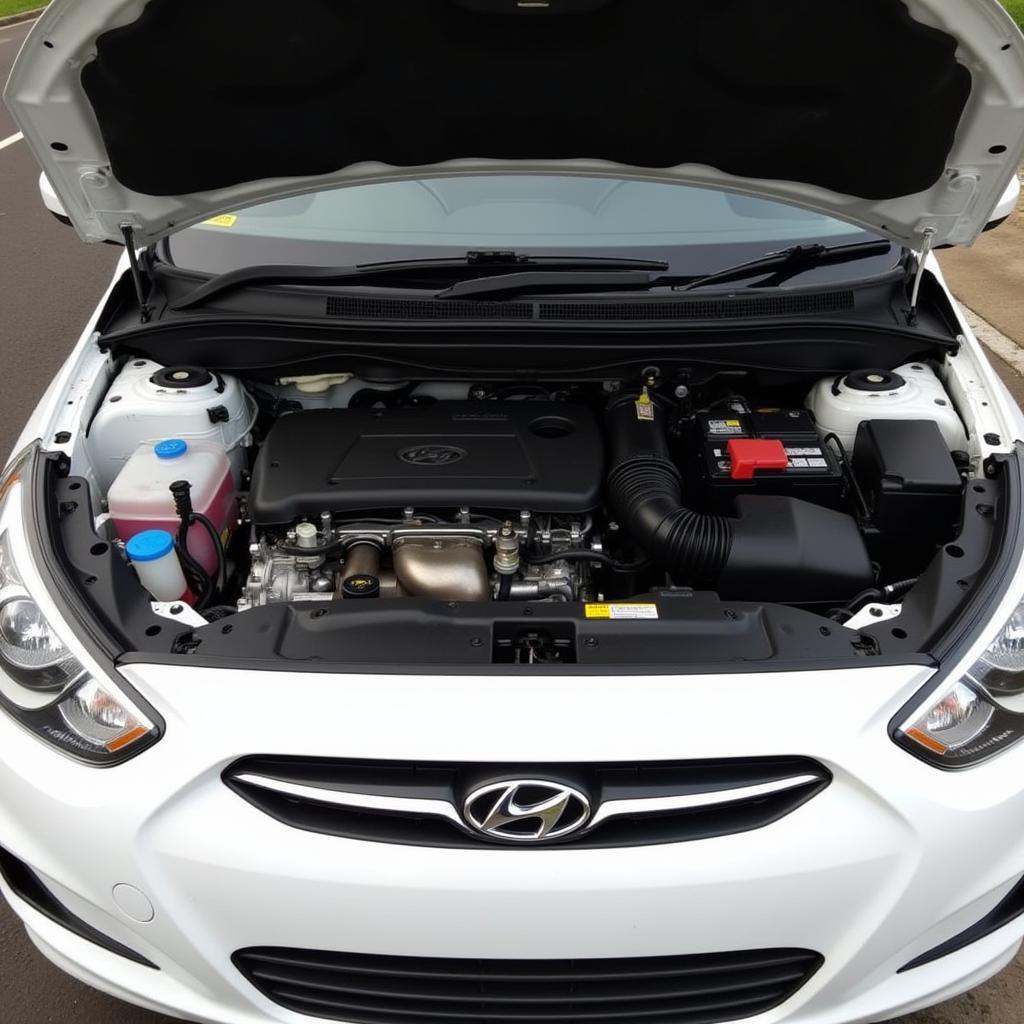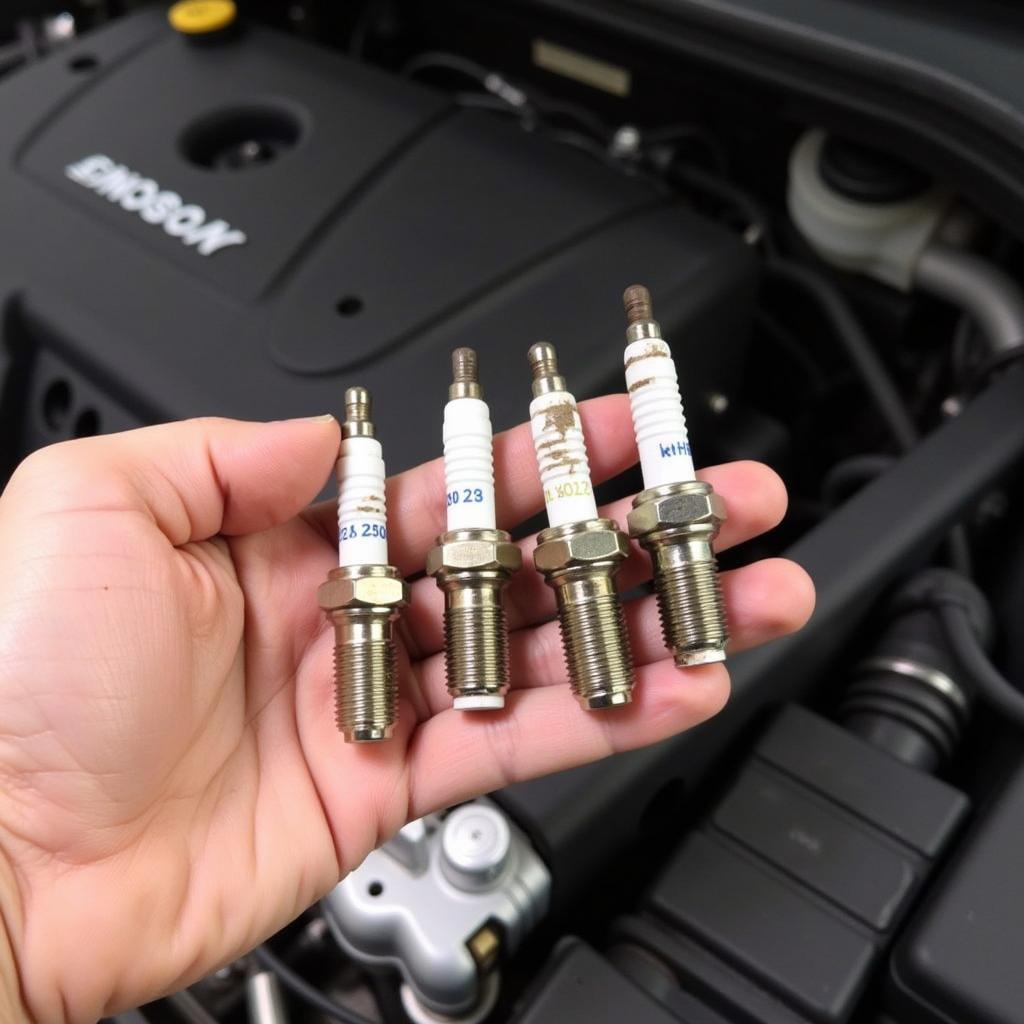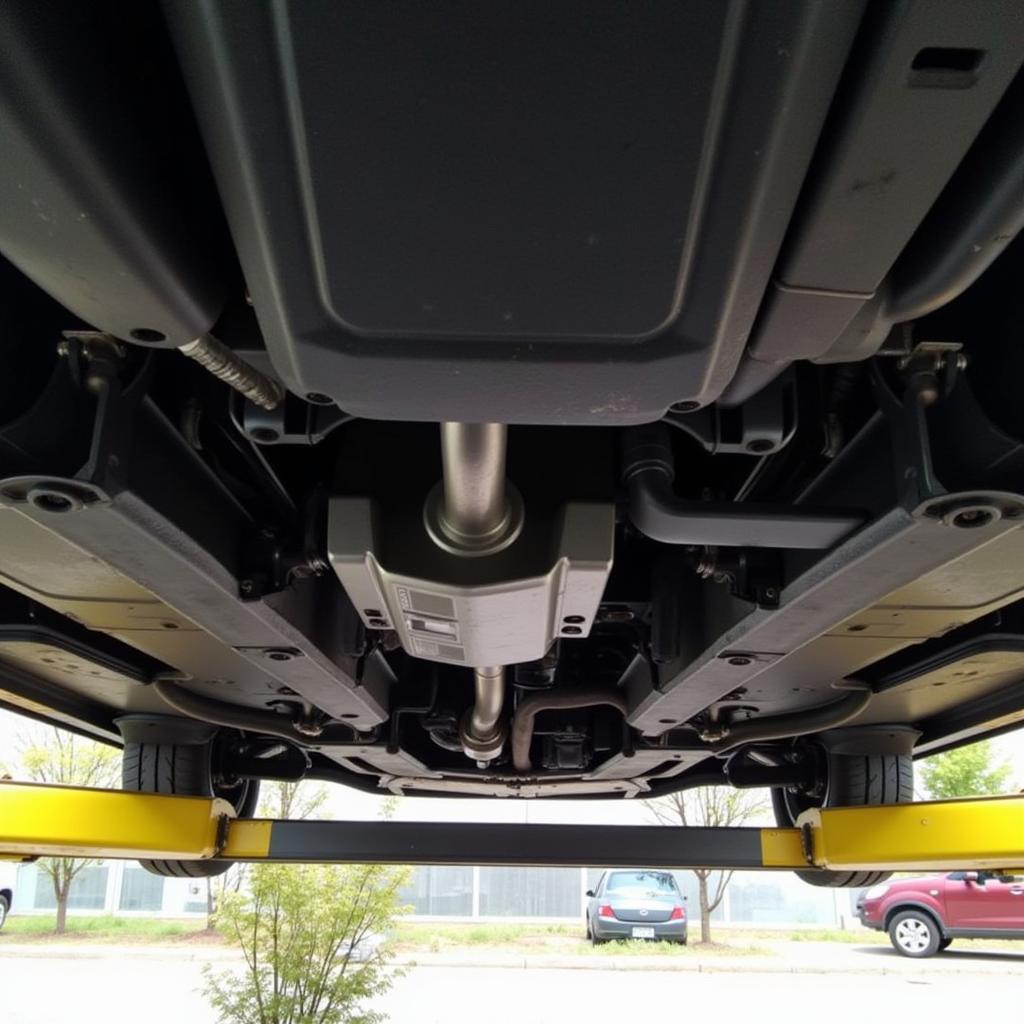The Hyundai Accent GLS 2013 is a popular subcompact car known for its fuel efficiency and affordability. However, like any vehicle, it can experience certain problems over time. This article aims to guide Hyundai Accent GLS 2013 owners, mechanics, and technicians on identifying and resolving common issues to keep their cars running smoothly.
Engine Problems
Engine Stalling
One common problem reported by Hyundai Accent GLS 2013 owners is engine stalling. This could be caused by various factors, such as:
- Faulty Throttle Position Sensor: The throttle position sensor (TPS) relays information to the engine control unit (ECU) regarding the position of the throttle pedal. A malfunctioning TPS can send incorrect data, causing the engine to stall.
- Dirty or Clogged Air Filter: A dirty air filter restricts airflow to the engine, leading to an improper air-fuel mixture and potentially stalling.
- Malfunctioning Fuel Pump: The fuel pump delivers fuel from the tank to the engine. If it fails or becomes clogged, the engine may not receive enough fuel, resulting in stalling.
Troubleshooting Tips:
- Check the air filter and replace it if it’s dirty or clogged.
- Inspect the throttle position sensor for damage or debris and clean or replace it if necessary.
- Have a mechanic diagnose the fuel pump for proper operation and replace it if faulty.
 Hyundai Accent GLS 2013 Engine
Hyundai Accent GLS 2013 Engine
Rough Idle
Another issue Hyundai Accent GLS 2013 owners might face is rough idling. This can manifest as the engine vibrating excessively when the car is stopped with the engine running. Possible causes include:
- Spark Plug Issues: Worn-out or fouled spark plugs can cause misfires and contribute to rough idling.
- Vacuum Leaks: Leaks in the vacuum hoses can disrupt the air-fuel mixture, leading to rough idling and reduced engine performance.
- Dirty Throttle Body: A build-up of dirt and grime in the throttle body can restrict airflow and cause rough idling.
Troubleshooting Tips:
- Inspect the spark plugs and replace them if they appear worn, damaged, or fouled.
- Check all vacuum hoses for cracks, loose connections, or damage, and replace them as needed.
- Clean the throttle body using a throttle body cleaner and a soft brush, following product instructions carefully.
 Hyundai Accent GLS 2013 Spark Plugs
Hyundai Accent GLS 2013 Spark Plugs
Transmission Problems
Slipping Transmission
A slipping transmission is a serious issue that should be addressed immediately. It can manifest as the engine revving high without a corresponding increase in speed. Potential causes include:
- Low Transmission Fluid: Insufficient transmission fluid can lead to slipping, overheating, and significant damage to the transmission.
- Worn Transmission Bands or Clutches: Over time, the transmission bands and clutches can wear down, causing slipping and shifting problems.
- Solenoid Problems: Faulty transmission solenoids can disrupt the hydraulic pressure within the transmission, leading to various issues, including slipping.
Troubleshooting Tips:
- Check the transmission fluid level and condition. If the fluid is low or appears burnt, have a mechanic inspect the transmission for leaks or internal damage.
- If you suspect worn transmission components or solenoid problems, it’s crucial to have the vehicle diagnosed and repaired by a qualified mechanic specializing in transmissions.
“Addressing transmission problems early is crucial,” says John Miller, a certified mechanic with over 20 years of experience. “Ignoring slipping or rough shifting can lead to more extensive and costly repairs down the line.”
 Hyundai Accent GLS 2013 Transmission
Hyundai Accent GLS 2013 Transmission
Electrical Problems
Battery Issues
Battery problems are relatively common in many cars, including the Hyundai Accent GLS 2013. Symptoms of a failing battery include:
- Slow Engine Crank: The engine cranks slowly when you try to start the car, indicating a weak battery.
- Dimming Lights: Headlights and interior lights may appear dimmer than usual, especially when the engine is off.
- Clicking Sound When Turning the Key: A clicking sound without the engine cranking can signal a dead battery.
Troubleshooting Tips:
- Check the battery terminals for corrosion and clean them with a battery terminal cleaner or a mixture of baking soda and water.
- Have the battery tested by a mechanic or auto parts store to determine its charge level and overall health.
- If the battery is old or failing, replace it with a new one that meets the vehicle’s specifications.
Electrical Malfunctions
In some cases, Hyundai Accent GLS 2013 owners may experience electrical malfunctions, such as:
- Malfunctioning Power Windows or Locks: Problems with power windows or locks can often be traced back to faulty window regulators, door lock actuators, or wiring issues.
- Faulty Alternator: The alternator charges the battery and powers the electrical system when the engine is running. A failing alternator can lead to battery drain and various electrical problems.
Troubleshooting Tips:
- If you’re experiencing issues with power windows or locks, check the fuses related to those systems.
- For suspected alternator problems, have a mechanic test the alternator’s output and replace it if necessary.
“Regularly checking your battery and addressing electrical issues promptly can prevent unexpected breakdowns and ensure your Hyundai Accent GLS 2013 remains reliable,” advises Miller.
Conclusion
While the Hyundai Accent GLS 2013 is generally a reliable car, it can experience some common problems. By understanding the potential issues and following the troubleshooting tips outlined in this article, Hyundai Accent GLS 2013 owners can address these problems proactively and keep their vehicles running smoothly for years to come. For further assistance or if you need professional help, feel free to contact us at AutoTipPro at +1 (641) 206-8880 or visit our office located at 500 N St Mary’s St, San Antonio, TX 78205, United States. Our team of expert mechanics is ready to assist you with all your Hyundai Accent Gls 2013 Car Problems.





Leave a Reply